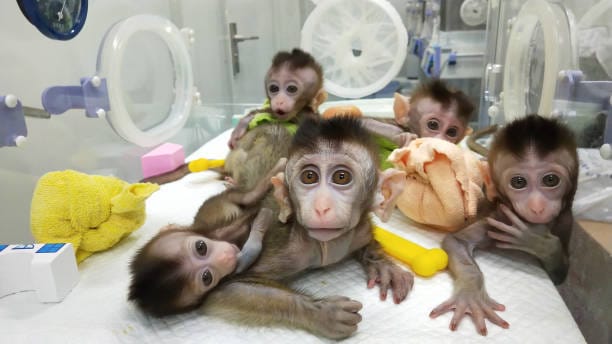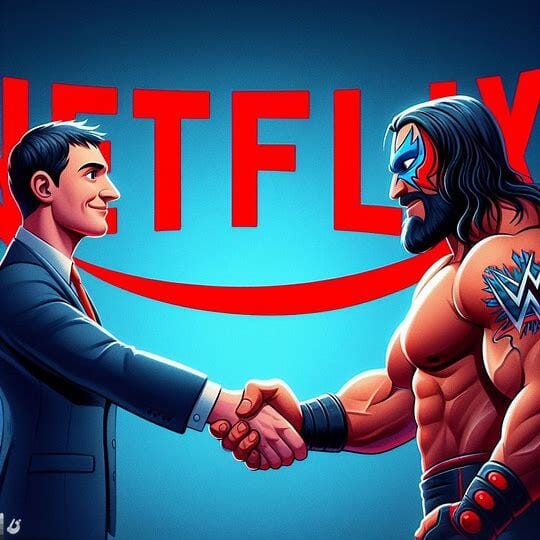US Affairs
Americans reversed their feelings about the economy

For All Mankind / AppleTV+
Americans have are feeling good about the economy, and hopefully, they’re onto something. US consumer sentiment just made its biggest two-month jump since 1991, the University of Michigan said yesterday.
The University of Michigan’s consumer sentiment index offers a monthly look into how Americans feel about their finances, business conditions, and what they think the future is going to look like.
With the job market getting better and inflation reducing, Americans haven’t felt this good about the economy since the summer of 2021:
In the first half of this month, the consumer sentiment reading jumped 13.1% from December, putting it nearly 30% above where it was in November.
Meanwhile, inflation expectations for the coming year dropped to 2.9% from 3.1% in December, the lowest in four years.
Analysts say lower gas prices and mortgage rates helped turn Americans’ opinions around, along with a strong rally in the stock market.
Don’t write off their opinions just yet
Since consumer spending is such a big portion of the US GDP, Americans’ sentiments regarding the economy are highly valued by experts who consider them a crucial indicator of economic strength.
While investors like to know how you feel about the economy, it’s possible no one cares more about your opinion than the Fed. Inflation expectations greatly factor into the central bank’s interest rate decisions, and this month’s improved inflation forecast makes it probable they’ll start cutting soon (which is a good sign for those looking for houses).
Happy consumers are also a big priority for the White House (especially since the current administration wants to be back for another term). The vast majority of Americans consider economic issues among their top concerns when voting, according to a recent Associated Press-NORC Center for Public Affairs Research survey.
However, the president’s approval rating is sitting at a meager 38% (as of writing), showing Americans’ opinion about the economy may not outweigh their lack of support for the current president.
America is at war with deepfakes

AI-Generated Image via Bing Image Creator
The US government thinks AI deepfakes pose a pretty big threat. A new house bill proposed by a bipartisan group of US House lawmakers announced on Jan. 10 regulates the use of AI for cloning voices and likenesses.
The No AI Fake Replicas and Unauthorized Duplications, or FRAUD Act, would make it illegal to create a “digital depiction” of any person, living or dead, without permission, including both their appearance and voice. Violators would be subject to fines of up to $50k per violation, or damages.
Some of the recent AI controversies the bill is trying to protect against include:
Fake songs replicating artists like Drake and Bad Bunny.
Fake advertisements featuring celebrities like Tom Hanks.
New Jersey high school students made sexually explicit AI-generated content of their underage classmates.
A Department of Homeland Security report that found over 100,000 AI images depicting women nude.
Why are lawmakers after deepfakes in particular?
Already, scammers are using AI to recreate the voices of people’s loved ones to trick them into sending money or providing personal info. And a look at history reveals that laws need to keep up with technology in order to stay on top of this new type of malevolent behavior:
In 1999, Gary Dellapenta was the first person charged under California’s cyberstalking law after posting online ads that attempted to trick men into assaulting a woman who rejected him.
California also led the way for those who post sexual content online for malicious purposes. In 2014, a man was sentenced to a year in jail for posting a topless photo of his ex on Facebook.
However, attorney Carrie Goldberg, who specializes in internet harassment, told Vice that the fight needs to happen on a systemic level, handing blame to the companies making deepfake products.
“We need to pressure search engines to not guide people to these products or promote sites that publish these images and we need to require that they make content removal simple for victims,”
Walmart is stepping up their pay game

Photo by Michael Ciaglo / Getty Images
Walmart is trying to win over their workers in a more competitive labor market by… paying them more. America’s largest grocery store is boosting its managers’ average pay for the first time in more than a decade.
Walmart announced last week that, starting Feb. 1st in the United States:
The average manager’s salary will get a 9% boost to $128,000, with lower salaries soaring from $65,000 to $90,000.
Their maximum bonuses will also increase from 150% of their base pay to 200%.
The retail chain, which has 1.6 million people under employment in the US, will raise the typical hourly workers’ wages from $17.50 to $18.
Why raise workers pay now?
It’s likely another try at boosting retention, recruiting, and possibly employee satisfaction (as several other big chains are facing unionization efforts). Walmart job perks include healthcare and free college tuition, and the company already shot up its minimum hourly pay by $2 to nearly double the federal minimum wage last year when the labor market was on fire.
While hiring is still competitive, employers may be gaining back some leverage as the Fed’s barrage of rate hikes start to cool down the labor market.
Science
The monkey cloning field saw a major breakthrough

Xinhua / Institute of Neuroscience of Chinese Academy of Sciences / Getty Images
What’s up with all the monkey news? This weeks earlier edition went over a breeding facility, and now this? A genetically cloned rhesus monkey named ReTro is the first healthy clone to survive into adulthood, according to new research.
The healthy three-year-old is just the third instance a cloned primate has reached maturity since two six-year-old twin macaques, Zhong Zhong and Hua Hua, born in 2018.
How was it done?
The success highlights a rare achievement in a rather convoluted procedure, called somatic cell nuclear transfer. ReTro was created by tweaking this process; swapping out the placenta of a cloned embryo with the placenta of an embryo created with in vitro fertilization, which, in theory, reduced defects in the baby.
Somatic cell nuclear transfer was the same technique used to produce Dolly the Sheep in 1996 (the first cloned adult mammal). Some medical researchers believe cloned primates could be more effective than mice in lab settings, while critics argue the procedures cause stress to intelligent primates.
The research team said this gets scientists closer to the possibility of producing genetically identical primates for clinical drug trials, rather than having to breed genetically diverse groups of research monkeys (like in this weeks earlier edition).
This isn’t limited to just monkeys… Thousands of animals, including carp, horses, wolves, and more, are cloned each year for agriculture and research, as well as for keeping your pets around after they’re gone.
The world's first malaria vaccine program is being administered in Africa

Photo by Yasuyoshi Chiba / AFP via Getty Images
This program may finally be able to end the epidemic Africa has faced for decades. On Monday in Cameroon, a handful of babies became the first humans in history to get a routine malaria shot. This marks a major accomplishment that tops decades of work to rid Africa of the deadly illness.
For a long time, we have been waiting for a day like this,
The new vaccine, Mosquirix was developed by GlaxoSmithKline and endorsed by the World Health Organization. It’s now being administered to children aged six months or younger for no cost at health facilities in Cameroon.
Malaria accounted for 12% of childhood deaths in the country in 2021, according to UNICEF.
The disease kills over 600,000 people each year, with 95% of them occurring in Africa.
Unfortunately, it isn't a perfect solution
There are details regarding the vaccine that will be crucial in garnering widespread acceptance and immunization, the Africa Centres for Disease Control and Prevention said.
The vaccine is only suggested for kids up to 17 months old.
It’s only about 30% effective.
The immunization starts to wear off in months, and doesn’t stop transmission.
Those immunized should also use traditional prevention methods like bed nets, health experts say.
Cameroon is hoping to vaccinate around 250,000 kids by the end of 2025, according to Time. Nineteen other African countries are planning to start similar immunization programs this year, which would cause problems for Mosquirix as there would be too much demand for the product.
However, a second malaria vaccine that just received WHO approval is expected to roll out this year and hopefully ease supply concerns.
Hey everyone,
We recently put together a FREE E-book to help you navigate the complex media landscape. Step by step, we outline how you can take control of your consumption of information in an objective and rational manner.
If this sounds like something you may like, click the link below for no cost.
We also offer a 75-page full version of the E-book that offers an even more comprehensive look into how you can take advantage of the information around us, for only $2.50.
Grab Bag
You can now go to magic mushroom school

AI-Generated Image via Bing Image Generator
Who would’ve thought we’d get magic mushroom school before GTA 6. In 2020, Oregon voters passed a ballot initiative that legalized psilocybin use for people aged 21 and older, becoming the first US state to do so. Now, professionals like midwives, hospice workers, and educators can train to become state-licensed psychedelic facilitators, per The Guardian.
Get ready for school
Oregon has 19 service centers; in order to work at one of them, students have to enroll in a training program and apply for a license. One such program, InnerTrek, was the first in the world to be recognized by the government.
The program takes half a year to complete, and is completed in a hybrid format (a mix of online and in-person learning) across 120 hours of “core training” and 40 hours of hands on experience.
Facilitators offer support for clients experiencing a range of issues, from anxiety and depression to trauma, addiction, and grief, and those who just want to see what it’s like.
You will probably be seeing more Psych(edellic) majors
There are now 24 state-approved psilocybin training programs like InnerTrek, as interest in administering psychedelics grows. And along with the psychedelic trend comes a new sector for business opportunities:
Psychedelic retreats are sprouting up globally.
The health care sector has been increasingly experimenting with ketamine and LSD as treatments for PTSD and depression.
Not to mention, other types of mushrooms are being used to make everything from ethanol fuel, to tea, to building materials, and could help sustainability issues. Looks like this is the decade of the mushroom.
The WWE is headed to Netflix

AI-Generated Image via Bing Image Creator
Netflix is continuing its streaming service domination by adding one of the biggest entertainment providers in the US. On Tuesday, Netflix announced a $5 billion deal with WWE. The 10-year agreement will bring WWE’s flagship show, Monday Night Raw, to the platform in the US, UK, Canada, and Latin America in 2025.
This means that Raw will not air on your typical TV programming for the first time in its over three decade long history. So far, it’s unclear if it will continue the same scheduling as had previously.
Netflix will also stream all WWE shows, like SmackDown and NXT, outside the US.
Annual live events, including WrestleMania, SummerSlam, and Royal Rumble (in addition to documentaries and other WWE projects) will all be on the streaming service giant.
This is new territory for Netflix
The deal establishes Netflix’s biggest venture yet into live sports, after years of the company saying it isn’t interested in sports rights (however, they also said they would never have ads, so).
If acquiring all of the WWE’s fans wasn’t enough for one day…
Netflix also posted its Q4 earnings, which showed its largest increase in subscribers ever (13.1 million to be exact), blowing past estimates of 8–9 million.
Its stock jumped more than 8% in after-hours trading (and has now rocketed up 14% as of writing).
In a letter to its shareholders, the company said it has no interest in “acquiring linear assets” and that further media consolidation won’t “materially change the competitive environment.” Basically saying it isn’t satisfied with its landmark growth and that it wishes all other platforms good luck. Paramount+ took that one personally.
Netflix also asserted that it has a positive outlook on investing in new content at a time when other streaming platforms are cutting back, Although Netflix has certainly cut some loose ties.
Fast Facts

GIF via GIPHY
Rat Attraction: Forget the giant bean… Chicago’s “rat hole” is the city’s newest tourist attraction, and was recently filled by an unknown assailant. Don’t rat on them.
Insta Insomnia: Instagram announced a new “nighttime nudge” feature that will suggest teens close the app when it’s late and they’ve spent more than 10 minutes on it.
Harvard Heretics: The Dana-Farber Cancer Institute, a Harvard teaching hospital, wants to retract six papers and correct another 31 as part of an ongoing review conducted after a biologist claimed researchers there, including the CEO, faked data and images. This marks the second major cheating scandal Harvard has had in the past month.
Record Round: The Chiefs-Bills playoff game broke the record for the most-watched NFL divisional round game of all time, with 56 million viewers.
Bearfoot: A study found a strong correlation between Bigfoot sightings and the local black bear population. I’m shocked.
If you enjoyed our newsletter even a little bit, please don’t hesitate to share, it would mean a lot! 😄 Also, if you’d like more snippets and critical analysis of the media please follow our X (Twitter) down below!






